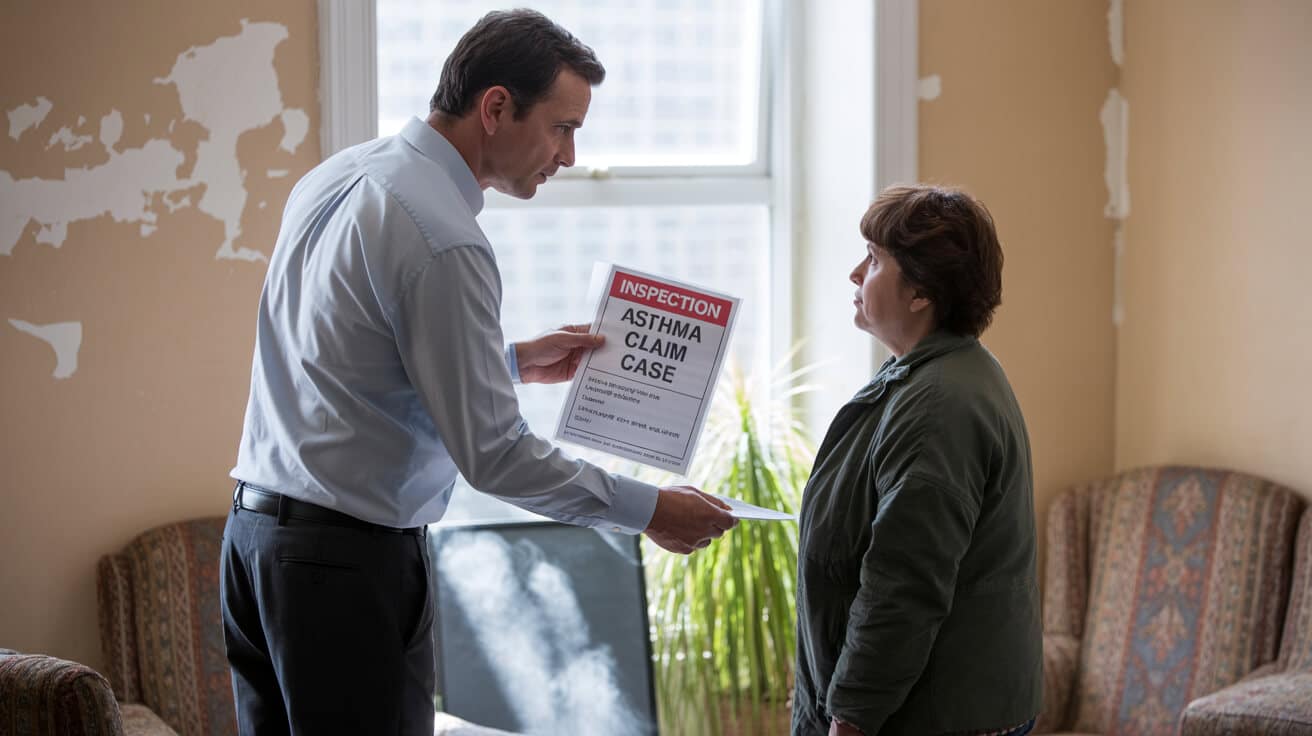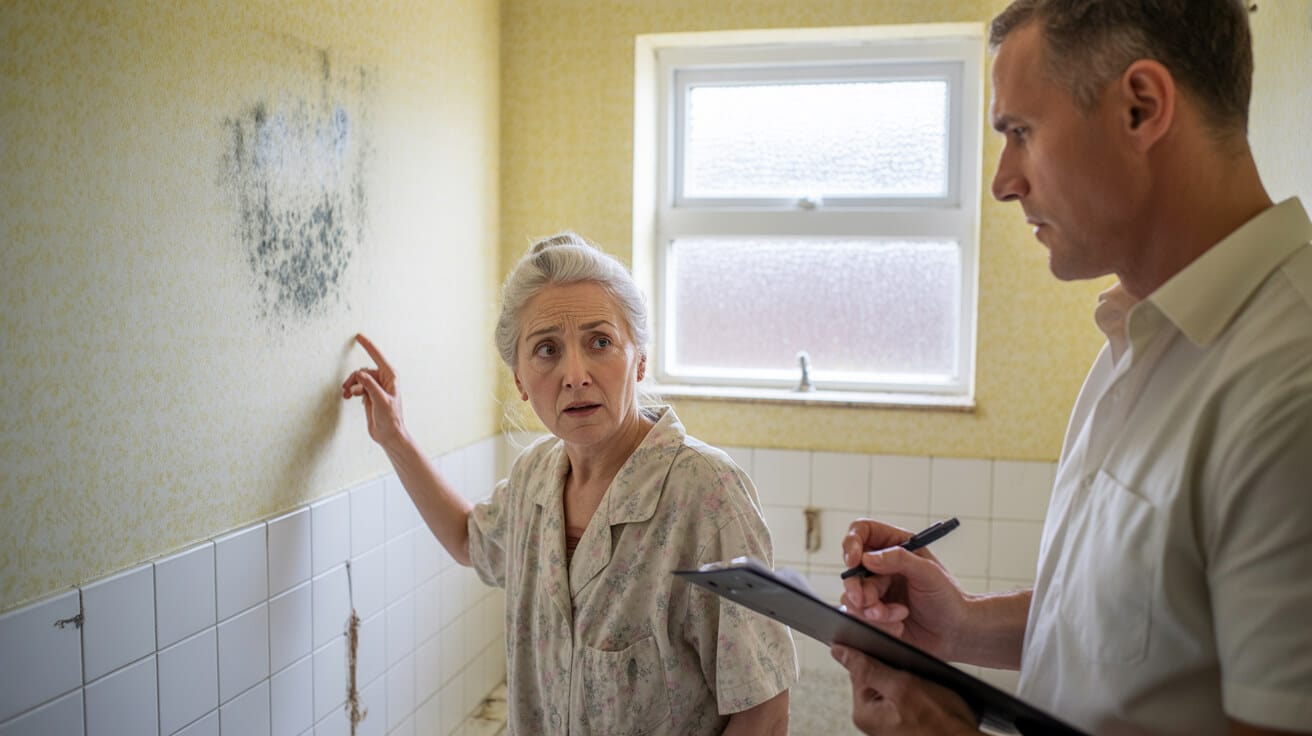 Awaab’S Law What It Means For Landlords And How Ppm Ensures Compliance
Awaab’S Law What It Means For Landlords And How Ppm Ensures Compliance

Did Awaab’s Law Redefine Landlord Responsibility—or Will Ignoring It End Up Defining Yours?
The death of two-year-old Awaab Ishak wasn’t an accident. His passing, after months of untreated mould in his family’s social flat, forced the UK to confront a brutal truth: too many landlords played the “not my problem” game, and the stakes got real. Public outcry didn’t just rattle Parliament—a tidal wave of headlines made sure no landlord could hide behind old excuses. “Awaab’s Law” inside the Social Housing (Regulation) Act 2023 cut through the noise with one message: if you’re running housing, you’re on the hook. This isn’t PR or ticking boxes—this is about life, death, and legal lines you can’t cross.
Life doesn’t give you warnings—neither will compliance officers under the new law.
Maybe you think this only hits rogue landlords or giant councils. That’s the old playbook. The law now says: every landlord, every agents, every property—no one is invisible. Awaab’s Law turned housing management from “do your best” to “prove it—or pay.” You’re expected to fix hazards fast, document every action, and show real timelines. Miss a step? Penalties are no longer the cost of doing business—they’re existential.
If you’re still thinking, “We’re good enough, nothing bad’s happened,” realise that the gap between ‘it’s fine’ and ‘it’s a crisis’ is one missed email, one dodged repair, one tenant who knows their rights. This is a new era, and it separates the proactive from the ones who get audited with little warning and less mercy.
What Does Awaab’s Law Actually Demand—and Why Can’t Landlords Cut Corners Anymore?

Awaab’s Law is not “guidance” or “optional best practice”—it’s a codified duty with timelines built in, and wiggle room has evaporated. Here’s what you’re now legally bound to do if you let out property in the UK:
- 24-hour hazard investigation: Any complaint about mould, damp, leaks, or threats to health? You start the assessment clock the second it lands.
- Seven-day repair rule: Once you confirm a material hazard, repairs don’t wait for a convenient gap—they’re actioned within a single week.
- Three working days for written tenant updates: Silence is no longer tolerated. Tenants must get clear, documented communication after every assessment.
- Immediate alternative accommodation if needed: If the home is unsafe, you sort somewhere else, fast—no debates or half-measures.
It’s all got to be logged, time-stamped, and ready to show—no more “our staff work really hard” as a defence. Regulators, ombudsmen, and now tenants themselves can demand this proof, without notice. Falling short is a business risk on a new scale: up to £30,000 per incident, potential rent repayments, and a public reputation spiral that doesn’t recover quickly (brighton-hove.gov.uk).
The shortcut is gone. You build systems now, or you pay for the chaos later. This is no longer “get around to it when you can.” It’s “if you can’t prove it happened, it never happened.” That’s the standard. Everything else—noise.
What Does Real Compliance Actually Look Like Now—And Why Do Most Landlords Get It Wrong?

There’s a clear gap between landlords who survive audits and those who don’t. Thinking your old routine—scribbled notes, mental to-do lists, waiting for tenant reminders—will keep the heat off? That’s how risk snowballs. Today, compliance is a trackable journey, not a fleeting promise.
The new reality? Compliance is a test you take in real time—no cheat days, no memory lapses.
Core actions every time a hazard is raised:
- Every complaint gets logged: No missed texts, no “we’ll remember”—entries in a digital (or at least physical) system, detailing date, type, and reporter.
- Rapid risk check—within a day: There’s no “it was a weekend.” If it’s classed as a health threat, someone inspects or assesses within 24 hours, no excuses.
- Tenant gets a written update—every time: You issue a time-stamped record of what was found and next steps within three working days, ongoing repairs included.
- Repairs kick off in a week—or accountability for any delays: If it can’t get done, you record the why and what’s happening instead.
- Every single action is documented: Photos, invoices, messages, who did what, when. Disconnected paper trails = audit failure.
- Unsafe? Arrange alternative accommodation—now: Tenants can’t be left exposed; you move them, or you’re in breach.
Today, I tried doesn’t protect you. Only hard documentation counts.
So where do landlords most often fumble?
- Unlogged complaints: that create gaps when regulators check.
- Slower-than-required first responses: —especially over weekends or holidays.
- Missed tenant communications: —no written record, just “we said something.”
- Patchy documentation: —bits and pieces that don’t add up under scrutiny.
- Failure to sort accommodation fast enough: —tenants left waiting for repairs.
If you’re not systematic, you’re betting against the clock. And with Awaab’s Law, it’s a losing bet.
Why Chasing Repairs Is the Fast Track to Trouble—And How Planned Preventive Maintenance (PPM) Sets You Free

Waiting for tenants to flag a problem? That’s the “hope you get lucky” strategy. From now on, relying on tenant complaints as your early-warning system is like driving with no fuel light—disaster is inevitable. Hidden leaks, growing mould, subtle damp patches? These wait for no one and won’t politely knock before hitting your timeline deadlines.
Acting only when something breaks leaves you in a constant firefight—scrambling when the clock is already ticking, trailing regulatory deadlines, paying for chaos because prevention never started. Not only does this breed tenant frustration, it sabotages your case in a compliance review.
Planned Preventive Maintenance (PPM) is what lifts you above the firefight. Here’s why landlords using PPM rarely get caught out:
- Problems surface before tenants complain: Inspections and checklists spot brewing issues before they become code breaches.
- Automatic compliance: Each visit, each check, each fix is logged by default. You’re already building the proof you’ll need in an audit without extra effort.
- Lower cost, less madness: emergency repairs and compensation are expensive. PPM turns the expense curve in your favour.
- Trust builds value: When tenants see you working preventively—not just reactively—they stay longer, recommend you, and fewer call in formal complaints.
PPM finds the risks you never hear about—so you fix them, not defend them ([twi-global.com](https://www.twi-global.com/technical-knowledge/faqs/what-is-preventive-maintenance?utm_source=openai)).
With PPM, inspectors and auditors see process and proactivity, not excuses. You get smoother audits, happier tenants, and a chance to build your brand on reliability instead of recovery.
What Really Happens if You Don’t Comply—and How the Smart Money Is Dodging Tragedy and Trouble

Compliance failures are no longer an “it might catch up with you years down the line” risk. Today, digital-savvy tenants, housing ombudsmen, and councils are proactively policing records and escalating even “grey area” breaches.
Consequences stack up fast:
- Up to £30,000 per offence: —and each breach (missed timeline, missed repair, missed documentation) is a new offence ([brighton-hove.gov.uk](https://www.brighton-hove.gov.uk/housing/private-housing/private-sector-housing-enforcement-policy?utm_source=openai)).
- Rent repayment orders: —12 months’ rent can go straight back to the tenant if neglect is proven.
- Blacklisting and licence revocation: —Could lock you out of major cities and even entire regions.
- Insurance and borrowing pain: —Bad compliance history means lenders hedge, insurers hike rates, sometimes outright refusal.
- Criminal prosecution: —Repeat or serious breaches? Court, sector bans, or even gaol enter the picture.
The cost isn’t just financial—it’s operational and reputational, and it can ricochet onto every property you own or manage.
The phone never rings with news of all’s well. It rings when things have gone wrong and you’re already behind.
If you’re treating audits like rare events, know that tenant complaints and public registers are making surprise scrutiny the new normal. “We didn’t know” isn’t accepted. “It wasn’t reported” is now a sign you’re missing the entire point—system failure, not just a one-off mistake.
Is Documentation Your Hidden Superpower—or Your Biggest Liability Under This New Law?

Documentation has gone from “nice-to-have” to the cornerstone of legal compliance, audit survival, and even business growth. If you can’t produce, on demand, the timeline of every report, every fix, every tenant update, and every receipt, you’re operating on borrowed luck.
That’s not scare tactics—it’s the new business maths under Awaab’s Law.
How to bulletproof your compliance file:
- Immediate, consistent recording: Every complaint gets an entry, automatically time-stamped.
- Investigation logs: Date, time, who inspected, what they found.
- Photo trails—before, during, after: With each image tagged for date and property.
- Certificates, receipts, and contractor logs: No skimping, no bits floating in an email somewhere.
- One-stop communications archive: Letters, emails, texts—all in one place, accessible for tenant, regulator, or yourself.
If it’s not in the log, for an auditor, it didn’t happen. No more plausible deniability.
Digital logbooks, app-based trackers, and platforms like All Services 4U move you from a folder shuffle to being audit-ready at a moment’s notice. This isn’t just about avoiding fines—it’s about competing with the landlords who get ahead because their file tells the true storey when it matters most (gov.uk).
Are Tenants Now Given Too Much Power—or Is Compliance Actually a Landlord’s Best Advantage?

Some landlords worry: “Tenants can game this system now.” The reality? They’re simply being handed tools to force compliance after generations of being ignored. Written responses with set timelines mean the power equation finally balances—and if you’re running your operation cleanly, this shift works for you.
Tenants gain:
- Immediate enforcement options: They can go direct to local councils if you miss a step.
- Quick compensation channels: Rent repayments and fines don’t need lawyers or protracted court battles.
- Public record of your reputation: Online reviews and official registers make past breaches very findable.
Landlords gain—if they lean in:
- Fewer escalations, more trust: Most hazards get resolved early, never hitting the complaint stage.
- Tenant confidence: When you show logs and evidence before they ask, you turn scrutiny into reassurance.
- Stronger lets, lower churn: Reliable housing attracts reliable tenants who stay longer.
- Positive financial ripple: Lenders and insurers increasingly reward proactive compliance.
Compliance isn’t about fearing tenants—it’s about futureproofing your brand and operations.
Instead of treating regulation as a burden, leading landlords are turning the process into a selling point. It’s the difference between waiting to be found out and being known for doing the right thing every time.
Will Your Properties Pass the “Surprise Audit”—Or Are You Waiting for a Warning That Will Never Come?

Every property on your book could get the call tomorrow—no dress rehearsal, no “we’ll get organised next week.” Could you, right now, produce proof of assessment, tenant communication, rapid repairs, and safe outcomes? Is your documentation as ready as your reputation needs it to be?
All Services 4U exists so the answer to those questions is a confident “yes.” Our scheduled maintenance plans, logged digital inspections, and compliance audits put you on the front foot. You get systems that back you, not spreadsheets that need patching on the fly. Audits go from panic attacks to box-ticking routines. Your compliance is more than survival—it’s competitive advantage.
Luck is not a process. Documentation is. Proactive landlords don’t wait and see—they simply never have to worry, no matter who’s checking.
If you’re tired of guessing whether your process would pass the test, it’s time to lock in real systems. Let an audit—or an inspector—be your moment of validation, not dread.
What’s the Smartest Next Step? Make Compliance Your Signature—and Leave Firefighting Behind
Action wins. In the new landscape, those who hesitate are left explaining themselves to stern faces and empty flats. The best landlords—attracting the tenants, the partners, and the lenders who matter—aren’t necessarily spending more. They’re just spending smarter, on systems that guarantee compliance and protect everyone involved.
All Services 4U gives you the toolkit: from scheduled, logged preventative visits to rapid repairs and airtight record-keeping, our solutions are designed for audit, insurance, and reputation. The laws have moved—and so has the market. Stay reactive, and you pay in stress and lost value. Go proactive, and you build a business no tenant—or regulator—wants to leave.
The landlords remembered for the right reasons are those who choose transparency, precision, and care before being forced.
Click to book your audit, opt in to a compliance plan, or get the urgent repair sorted—because the next call about mould or damp won’t come with a heads-up, but your response can already be logged, proven, and ready.
Frequently Asked Questions
How does Awaab’s Law change landlord obligations—and what does “reasonable response” actually require now?
Awaab’s Law doesn’t just update old protocols—it resets the entire bar for housing risk response times and documentation. Landlords must now prove, not just promise, that every reported hazard is met with rapid, recorded action. Written into statute after a tragedy that exposed fatal delays, this law makes your operational speed and evidence quality as significant as your technical repairs.
“Responding late is no different than not responding at all—delayed action is now an explicit compliance breach.”
What triggers a legal duty under Awaab’s Law?
- Tenant reports of damp, mould, leaks, poor ventilation, electrical risks, or structural faults.
- Detection of hazards in routine visits—even if tenants didn’t complain.
- Evidence from digital logs, photos, IoT sensors, or third-party inspections.
- Anything suggesting potential health or safety risk (including recurring condensation or odours).
Landlords need to acknowledge and investigate non-emergencies within 14 days, deliver a written assessment inside 48 hours after inspection, and begin repairs within a further 7 days—unless the issue is urgent, in which case the whole process can condense to within 24 hours, or even require rehousing.
How does Awaab’s Law escalate landlord risk?
It eliminates ambiguity: a vague “we’re dealing with it” or a missing timestamp puts you in direct line for fines up to £30,000 per breach, rent repayment orders, and potentially being barred from managing homes. Unrecorded delays or patchy logs can leave property teams defenceless during audits—no matter how good their intent.
With compliance standards climbing, All Services 4U helps close the loop. Our pre-configured workflows and reporting cycles are engineered for these new legal triggers, protecting your properties and your standing from day one.
Why is digital documentation now mission-critical for property managers under Awaab’s Law?
Regulators and courts aren’t interested in good faith—they demand traceable evidence at every step. Even a missed text or a misfiled repair photo can convert an everyday fix into a compliance failure. The new expectation is continuous digital recordkeeping: every communication, action, and decision logged, time-stamped, and ready for outside scrutiny.
What elements define an “audit-ready” record under the new law?
- Central, cloud-accessible logs: No more stray email chains or paper forms.
- Full event chronology for each case: From first report to final sign-off, gaps are non-compliant.
- Time-stamped, tamper-resistant evidence: Every photo, text, inspection, and tenant update needs a digital trail.
- Tracked responses and escalation: If a repair is delayed, the reason, communication, and correction must be documented.
- Backup of emergency actions: Alternative accommodation offers, ambulance calls, or safety equipment instals must be logged and supported by evidence.
The risks of “catch-up” reporting are higher than ever; reconstructing events after the fact is no longer defensible. Instead, digital-first processes provide “live compliance”—so your team can focus on repairs while the system does the policing.
“Our clients routinely sail through landlord audits, because documentation is triggered at every action—not bolted on when someone asks.”
How does All Services 4U align with these standards?
All Services 4U eliminates the scramble. Every technician visit, call, or tenant message puts evidence straight into your audit vault, ready for regulator review at a moment’s notice.
Where do most landlords get tripped up—and how do penalties accumulate under Awaab’s Law?
Penalties are no longer just theoretical. Under Awaab’s Law, missed steps or missing records leave landlords exposed to a ladder of escalating consequences:
- Up to £30,000 per breach, per property, or per distinct incident—multi-tenant buildings can multiply your exposure.
- Rent repayment orders: one missed protocol can cost you a year of income for that unit.
- Immediate intervention: Local authorities are empowered to take property control and run repairs using external managers if evidence is lacking.
- Reputational decline: Compliance registers and local press are actively updated to inform lenders, future tenants, and insurers.
- Insurability drops: With “live compliance” now the gold standard, insurers increasingly want proof of PPM and digital logs before offering cover.
A missing timestamp is all regulators need to classify your response as a breach—even if repairs were eventually made.
What chronic issues cause landlords the most trouble?
- Reliance on paper, emails, or verbal confirmations with no central backup.
- Informal tenant updates—the WhatsApp theme is real—left off the official record.
- Delayed or incomplete log entries (“We’ll update the system at week’s end” is a risk).
- Contractors not integrated into audit workflows.
- Overlooking “near-miss” hazards (condensation not officially logged, minor leaks gone unrecorded).
Landlords with digital-first, platform-driven records have sidestepped most penalty triggers—turning rapid documentation into a point of operational pride.
How does a proactive maintenance plan (PPM) convert legal risk into property value and reputation?
Planned preventive maintenance (PPM) is your “never-get-caught-off-guard” shield. It changes the compliance narrative from “scrambling to react” to “always a step ahead.” All emerging legal and insurance frameworks reward evidence of systematic checks—not just fast repairs after a problem surfaces.
What practical edge does PPM offer versus reactive strategies?
- Finds threats hidden from tenant view—like slow damp build-up behind walls or early-stage ventilation failures.
- Logs proof before tenants ever report an issue; every cycle is an evidence “receipt”.
- Buys you crucial response time if an emergency hits: logs already exist, deadlines are never missed.
- Elevates asset quality and tenancy rates: properties enrolled in regulated PPM cycles are more attractive to renters and buyers.
- Demonstrates due diligence for lenders and insurers—often lowering premiums.
“Inspections that don’t just spot problems, but pre-load evidence before regulators even arrive, flip compliance from a worry into a confidence badge.”
Why are digital systems the backbone of successful PPM?
Because preventive cycles are only as good as their traceability, digital systems offer real-time prompts, automated logging, designated escalation paths, and on-demand dashboard evidence for every stakeholder.
What platform features guarantee regulator-ready compliance—with minimal admin distraction?
Awaab’s Law puts the onus on retrieval speed and record detail. Five platform features define “compliance by default”:
- Online accessibility: No more waiting for staff to return to the office, or printouts to be found—evidence must be findable instantly.
- Automated time-stamps: Reduce human error and ensure every action’s moment-of-proof stands up to legal testing.
- Workflow integration: Technician notes, tenant queries, and manager actions all combined in the same case thread—no silos, no gaps.
- Audit trail permanence: Secured against accidental deletion, staff turnover, or device loss.
- Alerting and escalation logic: Prompts and flags for overdue steps, unaddressed risks, or missing signatures—so nothing is missed in real time.
All-in-one platforms transform your evidence stack from just-in-case to real-time compliant, pre-empting regulator headaches before they start.
How does All Services 4U deliver these benefits?
All Services 4U’s cloud platform is plug-and-play for tight landlord teams or large portfolios alike—delivering instant compliance, minimising day-to-day admin, and building trust with tenants and external authorities.
What next steps make Awaab’s Law an advantage for progressive property owners?
Alegally robust, future-facing approach isn’t about doing the minimum—it’s about turning compliance itself into your competitive edge. Landlords who act today:
- Schedule a comprehensive compliance audit to flag and resolve gaps before they go public.
- Enrol in a digital-first PPM scheme, making regulatory cycles part of property culture rather than annual panic.
- Migrate all reports and ongoing repairs to a single digital logbook—no matter the property size.
- Put staff, tenants, and even contractors on one communication standard: clear escalation trees and rapid evidence sharing.
- Position their properties—and brand—as the “safe, compliant, hassle-free” choice for residents, partners, and even the press.
The landlords winning long-term trust are the ones who treat compliance as a springboard for better homes—not a box to tick once a year.
Booking an All Services 4U audit or maintenance upgrade means you step into the leadership lane, not just legal safety. Let’s reframe compliance as an asset, building both your property reputation and your peace of mind. Today’s proof is tomorrow’s value—make it automatic.



